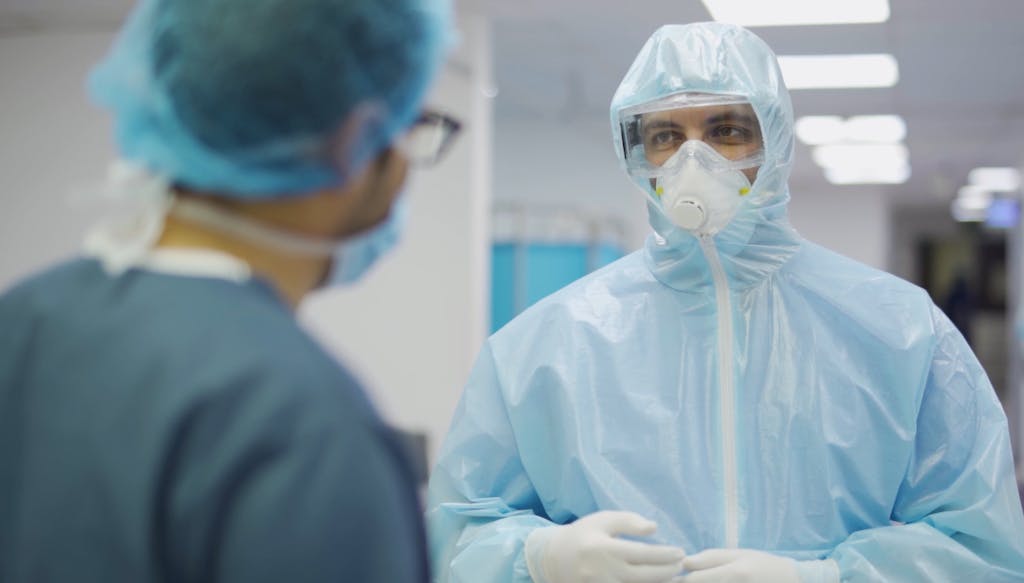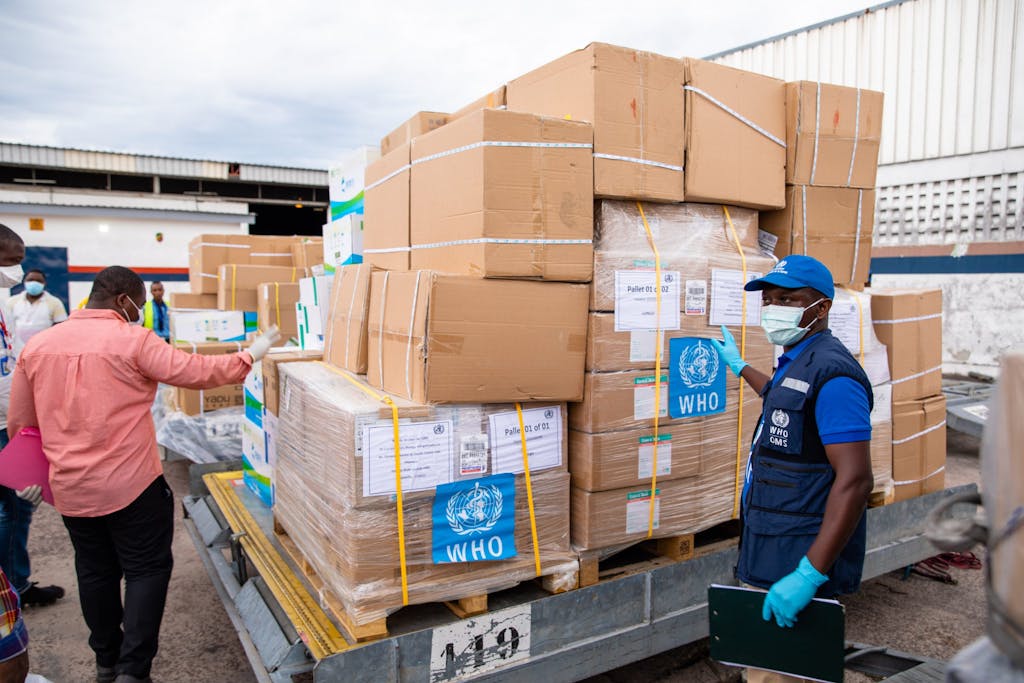Kicking off the new year, the World Health Organization (WHO) will convene its annual Executive Board meeting Jan. 18-26. But while the calendar may read 2021, we’re still in the midst of a raging global pandemic, a race to get as many people vaccinated as quickly as possible, and growing concerns of the economic fallout and other health crises caused by COVID-19.
As the UN agency in charge of safeguarding the world’s health and serving the vulnerable, WHO will continue to forge a path forward to bring an end to the pandemic and address COVID-19’s impact on broader global health issues. Here are the top three issues to watch for during the 2021 Executive Board meeting.
How the COVID-19 response is going
More than a year after COVID-19 first appeared, the current state of the pandemic is bleak. The global death toll stands at more than two million and rising. Many countries, including the U.S., are experiencing unchecked community spread. The appearance of new, potentially more contagious, variants and mutations in nearly 50 countries has public health experts and everyday citizens concerned. The WHO Emergencies Committee met this week to address these concerns and discuss further guidance to countries on how to limit spread of the virus and its new variants. The Committee called for increased scientific collaboration to expand genomic sequencing and sharing of data to address these variants, as well as underscored the need for equitable access to tools to deal with COVID-19.

Many countries are likely to bring their concerns about these variants and equitable access to the Executive Board meeting as well. Equal access to vaccines, diagnostics, and therapeutics will undoubtedly be a large focus for much of the discussion. New tools, particularly vaccines which have offered a glimmer of hope amid all the bad news, will be vital to end this pandemic. Yet currently only approximately 50 countries, almost entirely high-income countries, have introduced vaccines—far too few to make a significant difference in global transmission of the virus. Additionally, low- and middle-income countries are very concerned their access to these vital tools to stop the pandemic is being thwarted. As WHO Director-General Dr. Tedros Adhanom Ghebreyesus recently shared in a member state briefing, equitable access to COVID-19 tools for all countries is the fastest way to stabilize health systems, restore essential health services, and stimulate global economic recovery. WHO and member states will have to work together in solidarity if we want to bring an end to the pandemic for everyone, everywhere.
As countries look to strengthen their current response and future ability to prepare or and respond to global health emergencies, two important independent review bodies will help guide their efforts. During the Executive Board meeting, the International Health Regulations (IHR) Review Committee and the Independent Panel for Pandemic Preparedness and Response (IPPR), will both release new reports. Each body is conducting extensive consultations with member states, front-line health workers, private sector representatives, youth, and other key stakeholders on the front lines of the pandemic response to analyze how the global response to COVID-19 is going and how future preparedness for global health threats can be improved through reforms. The IHR Review Committee and IPPR’s findings and recommendations will be essential to help us speed an end to the crisis phase of COVID-19 and also help strengthen WHO and global health systems to prevent future pandemic threats. The reports will be shared publicly on Jan. 19 and can be found on the IHR Review Committee and IPPR website.

A new chapter as the Biden administration begins
Over the course of the Trump administration, the relationship between the U.S. government and WHO has grown increasingly tenuous. President Trump began the withdrawal process from WHO last summer, all while the COVID-19 pandemic raged. The Jan. 20 inauguration of Joe Biden and Kamala Harris as the next president and vice president of the United States is a welcome sight for most in the global community who are urging renewed cooperation and solidarity between the U.S. and WHO. Once the new administration is officially in office, which will happen in the middle of the Executive Board session, we expect one of its first executive actions will be to restore a strong relationship between the U.S. and WHO. We also anticipate the new administration to use its platform at the Executive Board on Jan. 21 to publicly renew America’s commitment to cooperation with WHO and the UN system.
It will be vital for the U.S. to once again take a prominent role in WHO — especially as COVID-19 continues to surge across the country — to build stronger response capacities to help end the pandemic and prepare for future threats. We also hope the Biden administration will commit early on to joining the Access to COVID-19 Tools Accelerator (ACT-A), the global initiative that aims to get vaccines, treatments, and testing to everyone, everywhere equitably. The U.S. is one of the very few remaining countries to not sign on to this collective effort, and its absence has been acutely felt on the global stage. While balancing both the domestic and global response will be challenging for the incoming administration, participating in collective global solutions like ACT-A will be vital to help bring the pandemic to an end sooner and allow for rapid economic recovery.
Critical funding for other health crises
While the COVID-19 pandemic has brought WHO to the forefront on global emergencies, it is important to remember WHO also works on a wide range of health issues from mental health to obesity, from measles and polio, to oral care and reproductive health. What’s more, WHO does it all on a budget that is roughly equivalent to one medium-size U.S. hospital. The COVID-19 pandemic has demonstrated just how insufficient WHO’s budget is to handle routine health issues, let alone emerging global health threats and outbreaks.
The Executive Board meeting is expected to debate and decide on the budget for the upcoming few years and is likely to underscore in particular the need for more robust funding for global health emergencies and to renew essential health services such as routine immunization for polio and measles that have been slowed or paused due to COVID-19. Calls for stronger investments in surveillance and preparedness are also expected.
The Executive Board meeting is sure to be an important global gathering at a pivotal point in the response to COVID-19. As we pass the one-year anniversary of the start of COVID-19 and look toward the swift rollout of vaccines and other tools to help stop the pandemic, decisions made by member states will be vital to move forward with recovery for everyone, everywhere. You can follow the livestreamed discussions on WHO’s website.
Featured Photo: U.S. Mission to UN Geneva



 View All Blog Posts
View All Blog Posts

